
 |
|
|
|
|
#1 |
|
Member
Join Date: Dec 2004
Location: What is still UK
Posts: 5,806
|
While out searching for an over looked treasure for just a few quid today, all I could really afford. I came across this, many, many times a few quid
 . It was either buy it or walk away. Well you can see what happened, I hope the poxy car behaves its self for a few months. . It was either buy it or walk away. Well you can see what happened, I hope the poxy car behaves its self for a few months.Length of flint head approx 18cm. Total length 48cm. Bark binding. Some worm hole damage to the halft. There is a twisted lanyard/loop of old telegraph? wire. The wire is a single steel wire covered in a machine woven flax/hemp like material. There are probably some wire freaks out there but are they watching? get a life! The seller said it is Australian Aboriginal and came from a private collection in Lewes, don't they all  . It could be from the Northern Territories to PNG. I will add pics of similar things from the Torres Straits. Does anybody have pics of anything similar or other examples. yab a dabber do!!! . It could be from the Northern Territories to PNG. I will add pics of similar things from the Torres Straits. Does anybody have pics of anything similar or other examples. yab a dabber do!!!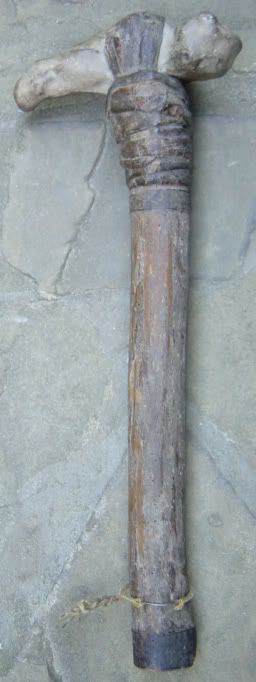 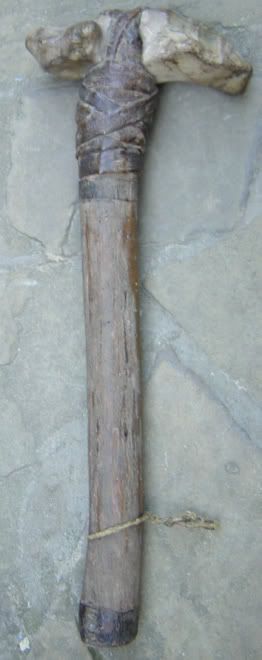 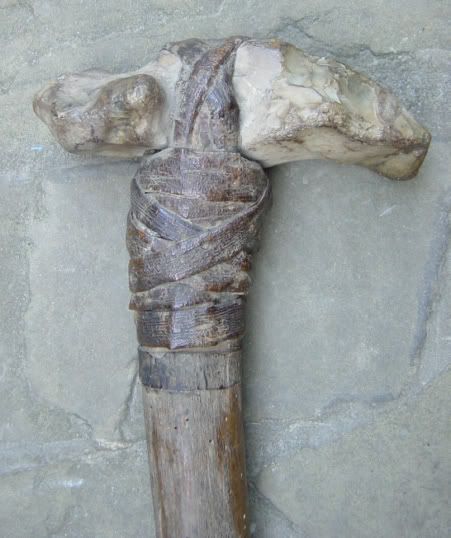 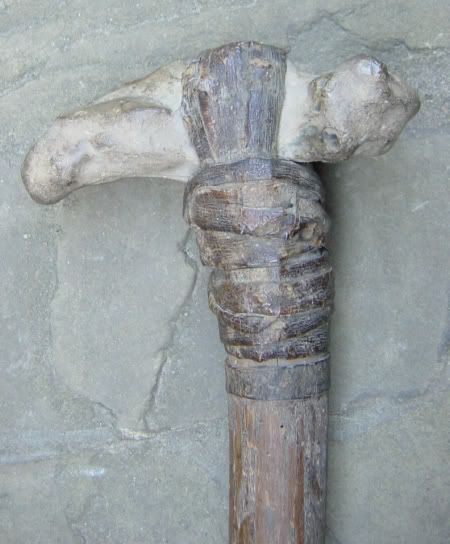 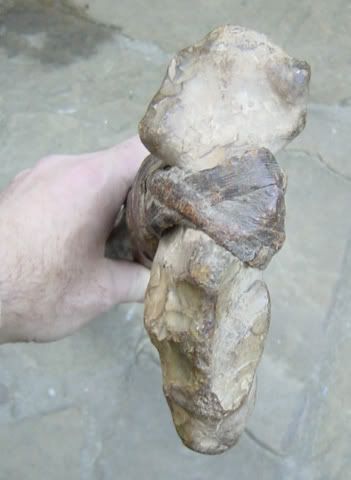 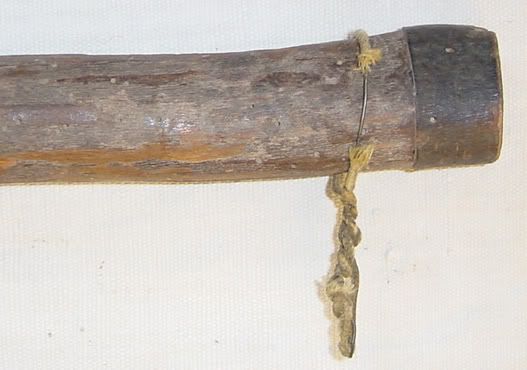
Last edited by Tim Simmons; 17th March 2007 at 10:58 PM. |
|
|

|
|
|
#2 |
|
Member
Join Date: Jan 2006
Location: Kent
Posts: 2,653
|
Certainly has rustic charm Tim, nicely organic
 Are these bi-functional ie weapon and a tool ? The centre 'groove' in the stone head.....is it natural or man-made? Are these bi-functional ie weapon and a tool ? The centre 'groove' in the stone head.....is it natural or man-made?
|
|
|

|
|
|
#3 |
|
Member
Join Date: Dec 2004
Location: The Netherlands
Posts: 1,209
|
I must say Tim, that it looks very very nice to me. I think it is a nice find.
|
|
|

|
|
|
#4 |
|
Member
Join Date: Jan 2007
Posts: 181
|
An aborigine stone club, eh? Does that make the correct war cry "Yabba-Dabba-Didgeri-Doo?"
 Nice piece, not that familiar with Australian aborigine weapons (beyond the ubiquitous boomerang), but I seem to recall their tech level was still solidly in the Neolithic period, right? |
|
|

|
|
|
#5 | |
|
Member
Join Date: Dec 2004
Location: Italia
Posts: 1,243
|
Quote:
More Upper Paleolithic! I think that the central groove is hand made. Verrrry nice!!!! |
|
|
|

|
|
|
#6 |
|
Member
Join Date: Dec 2004
Location: What is still UK
Posts: 5,806
|
Thanks everyone. I have been thinking about this a little more and come up with some ideas.
I am not saying this is the reality to the clubs origins but it is interesting and feasible to me. The stone is largely as found. There is evidence of a small amount of napping to enhance the natural shape. I am going to suggest that the stone was selected for its resemblance to a beak/birds head. Not sure if it is flint, the stones I see when walking my dogs looks similar but not quite the same. There is a sheen or patina to the club stone. Perhaps a very slight polishing through use? Back to the bird head idea. These pictures come from the A.C. Haddon expedition collection at the British Museum. I also think it is reasonable to include islands such as New Britain and New Ireland. I am sure there would be something about the fellow "google". How widespread the obviously symbolic bird head thing is a do not know. 527 is 5cm shorter than the club stone and is listed as follows- Bird, stone. biro-biro zogo or lewer zogo . Volcanic stone pecked and ground to represent the biro biro bird. This was kept at Kabur on Mer and used in magical procedures to ensure good yam crop. 626 is listed as a wood birds head club the rest of the information is just descriptive. 526 is very interesting as to me it is more abstract than the club stone and 527 in the representation of a birds head. The listing is the same as 527. Last edited by Tim Simmons; 18th March 2007 at 06:42 PM. |
|
|

|
 |
|
|